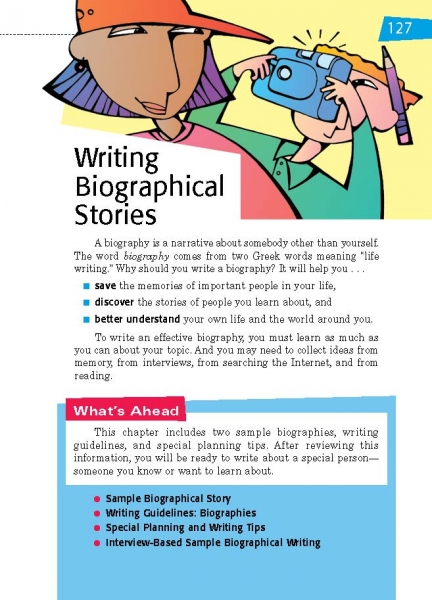Page 127 from

Start-Up Activity
Biographical writing serves as a logical next step after students have written personal narratives. It gives students an opportunity to write about other people—those they know well, or those they would like to learn about. Read and discuss page 127, focusing on the value of writing biographical stories. Then have students write down two or three people they would like to write about. Ask for volunteers to share their ideas.
Think About It
“So I get my ideas from things that have happened to me, things that I find interesting, things that happen to other people.”
—Christopher Paul Curtis



